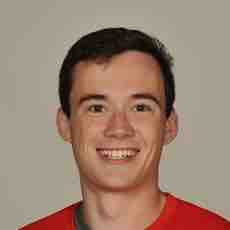Celebration of Scholars
A Reflection on Psychology Students' Perceived Research Skills
 Name:
Alison Mackey
Name:
Alison Mackey
Major: Psychology
Hometown: Marengo, IL
Faculty Sponsor: Elisabeth Cameron
Other Sponsors: Cornelia Zerban
Type of research: Independent research
Funding: N/A
 Name:
Michael Von Borstel
Name:
Michael Von Borstel
Major: Psychology
Hometown: Orland Park, IL
Faculty Sponsor: Elisabeth Cameron
Other Sponsors: Cornelia Zerban
Type of research: Independent research
Funding: N/A
Abstract
The
Department of Psychological Science at Carthage has made several changes to the
psychology major on the recommendation of the American Psychological
Association’s “blueprint” for undergraduate education, which has proposed that
scientific methods should form the core of the psychology major (Halpern,
2010). The goal of this project was to assess the extent to which
undergraduates in the psychology major at Carthage are making progress towards
a better understanding of research methodology. A subset of items from the
Academic Skills Inventory (Perry,
Foust & Elicker, 2013) was
used for students to report their understanding in the domain of research
methodology and statistics. Students responded on a Likert scale indicating how
strongly they agreed with statements, such as “I understand that researchers’
biases can influence studies”. 157 students from “core” classes in the
psychology major (Introduction to Psychological Science, Behavioral Research
Statistics, Experimental Psychology, and Thesis in Psychological Science)
completed the survey. For most items, students’ perception of their knowledge
did not differ across academic year. Responses from freshmen varied from
other academic years for items that assessed specific knowledge about
statistics. The relatively small differences in responses across academic year
is surprising. One possibility is that students’ metacognitive appraisal of
their own understanding is not very accurate. To explore this
possibility, on-going research will assess actual skills and knowledge.
Submit date: March 14, 2016, 7:52 p.m.
